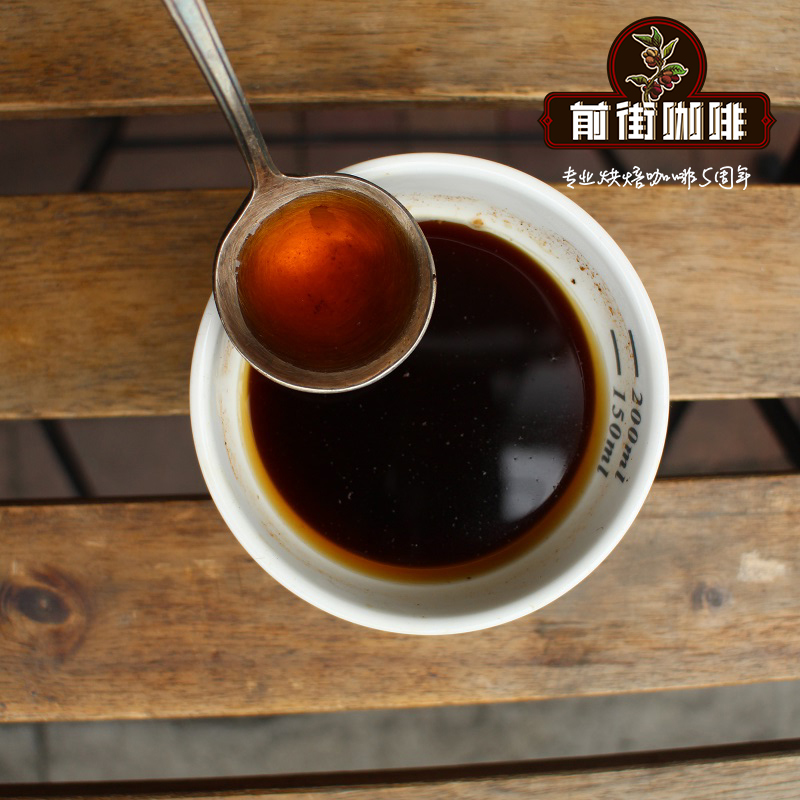What are the boutique coffee beans of Yemeni coffee? Yemeni famous coffee beans

Professional coffee knowledge exchange more coffee bean information please follow the coffee workshop (Wechat official account cafe_style)
YEMEN MOCHA, Yemen, although, in terms of species research, coffee originated from Ethiopia, from a humanistic point of view, the introduction of coffee as a beverage to the European world took place in Yemen in Arabia. since then, coffee is equal to Yemen and Mocha.
Mocha is a commercial port, just as Brazilian coffee is exported by Santos port, so it is called Brazilian coffee with Santos. The port of Mocha, which exports coffee, has also become the general name of Yemeni coffee.
Yemen is completely different from other coffee-producing countries because of its lack of water, dry climate and poor land, which makes the coffee trees that survive in Yemen different from those grown in other large coffee countries.
Compared with Arab Yemen, the climate of Central and South America is like a well-equipped greenhouse. Adverse factors lead to the decline of the Yemeni coffee industry. But also because of these factors, the flavor of Yemeni coffee shows uncontrollable primitive wildness.
90% of the world's coffee can be traced back to Yemen, and coffee genetics has been studied by different organizations, such as the World Coffee Research Organization and the Coffee quality Institute. This is the root of the words "mocha coffee" and "Arabica coffee".
The history of Yemeni coffee can be traced back to centuries, and tracing its roots means investigating through vague records and fantasy myths. However, we know that by the 15:00 century, Sufi monks in Yemen had begun to breed, drink, and produce coffee for trade. Over time, Yemen exquisite use of its unique climate and terrain to produce unique and delicious coffee.
Coffee is the focus of trade, social interaction and even religious piety. Its consumption has led to the birth of coffee shops, new exports in Yemen and even powerful stimulants of praying Muslim monks. However, the effect is not always positive, and Yemeni coffee will bear the brunt of controversial bans, war damage, and even sparking looting and espionage.
Yemeni Coffee's great contribution to world history is best described in its iconic port town of Al-Makha. Under the umbrella of the Ottoman Empire, Yemen carefully adjusted and carefully protected its precious caffeinated goods. Because they are unwilling to sell live coffee plants or seeds, they have established a global monopoly on the coffee trade centered on this sleeping port. Yemen has monopolized the world coffee trade for 200 years, shipping large quantities of sterile beans from the port of Al Mokha.
Even if the rest of the world eventually catches up with Yemen in coffee cultivation and production, Yemen remains impressively famous in the world of specialty coffee. With a wild and unique flavor, its beans are unique and continue to attract drinkers.
On the high-altitude agricultural shelves carved on the hillside, farmers carefully cook coffee with the intimate delicacies handed down from past generations. Whether they plant seeds in ash to reduce moisture before planting, burn weeds to kill insects on Saturdays, or use local livestock to provide organic fertilizer, you will notice a lack of chemicals and excess hands-on care and precision.
The variety of Yemeni coffee is complex, so it is generally named after the place of origin, such as Mattari,Sanani,Ismaeili,Hirazi, etc., and the official name will be preceded by Yemeni mocha, such as YEMEN MOCHA MATTARI.
Drinking a cup of Yemeni coffee is special. It is a caffeinated pick-me-up, goes back in time, and is culturally enlightening.
Qianjie Coffee suggests [Yemeni mocha] brewing parameters:
V60According to one minute and fifty seconds, 15 ℃ / time
Flavor: spices, chocolates, grapes
Important Notice :
前街咖啡 FrontStreet Coffee has moved to new addredd:
FrontStreet Coffee Address: 315,Donghua East Road,GuangZhou
Tel:020 38364473
- Prev

What are the characteristics of mocha coffee beans in Yemen? Yemeni Coffee the planting history of Yemeni mocha coffee
Professional Coffee knowledge Exchange more information on coffee beans Please follow the Coffee Workshop (official Wechat account cafe_style) in 1708, de la Roque and three ships of the French East India Company arrived at the port of Mocha in Yemen, becoming the first French to sail around the southern tip of Africa into the Red Sea. At the risk, they spent a year sailing such a long distance just to buy coffee directly.
- Next

How do you drink Yemeni coffee? What are the characteristics of Yemeni coffee beans? Yemeni boutique coffee beans
Professional coffee knowledge exchange more coffee bean information please follow the coffee workshop (Wechat official account cafe_style) according to the World Coffee Research Institute, the first archaeological evidence of beverage coffee consumption has been found in the city of Zabid in Yemen. In the 15th century, coffee was grown in Yemen to meet local needs. In 1450, Islamic Sufi people in Yemen first prayed late at night.
Related
- Detailed explanation of Jadeite planting Land in Panamanian Jadeite Manor introduction to the grading system of Jadeite competitive bidding, Red bid, Green bid and Rose Summer
- Story of Coffee planting in Brenka region of Costa Rica Stonehenge Manor anaerobic heavy honey treatment of flavor mouth
- What's on the barrel of Blue Mountain Coffee beans?
- Can American coffee also pull flowers? How to use hot American style to pull out a good-looking pattern?
- Can you make a cold extract with coffee beans? What is the right proportion for cold-extracted coffee formula?
- Indonesian PWN Gold Mandrine Coffee Origin Features Flavor How to Chong? Mandolin coffee is American.
- A brief introduction to the flavor characteristics of Brazilian yellow bourbon coffee beans
- What is the effect of different water quality on the flavor of cold-extracted coffee? What kind of water is best for brewing coffee?
- Why do you think of Rose Summer whenever you mention Panamanian coffee?
- Introduction to the characteristics of authentic blue mountain coffee bean producing areas? What is the CIB Coffee Authority in Jamaica?

